Carer shortage: Woman's care suspended for two months during Covid
- Published
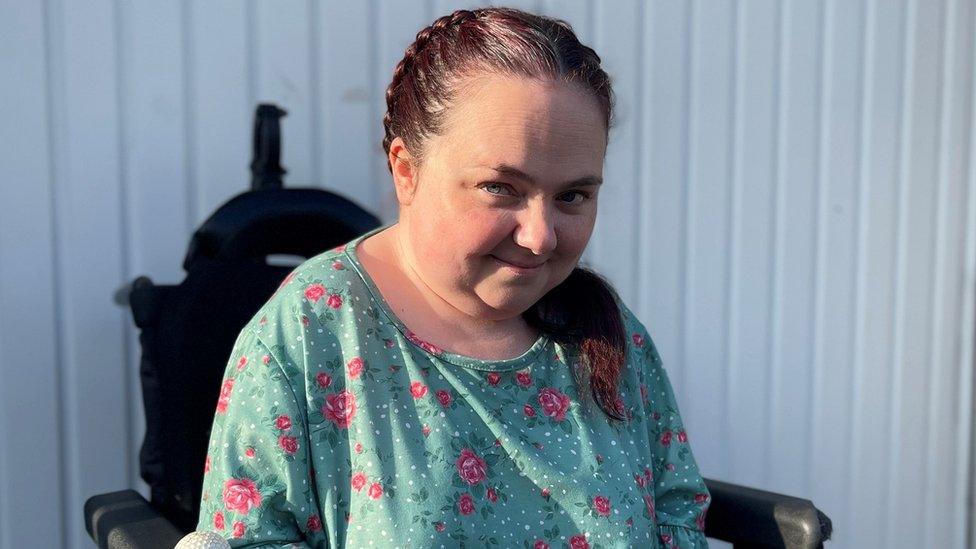
Jenna Kearns received care visits four times a day for her rheumatoid arthritis, before it was all withdrawn for two months
A woman whose care was withdrawn for two months during Covid said she lives in constant fear it will happen again.
Jenna Kearns, from Newport, had received four care visits a day due to her rheumatoid arthritis, before it was suspended due to staffing issues.
A new Senedd-commissioned study has found she was not alone: four in 10 people who needed social care during the pandemic did not access it.
The report, from Swansea University, included more than 2,500 participants.
Jenna, 31, who requires care visits to help her bathe, cook and eat, had all of her care withdrawn in September 2021 due to staffing problems at the private company that provided it.
The decision came at such short notice that social services weren't able to arrange any replacement care, and so Jenna was left without for about two months.
'In a way you feel guilty'
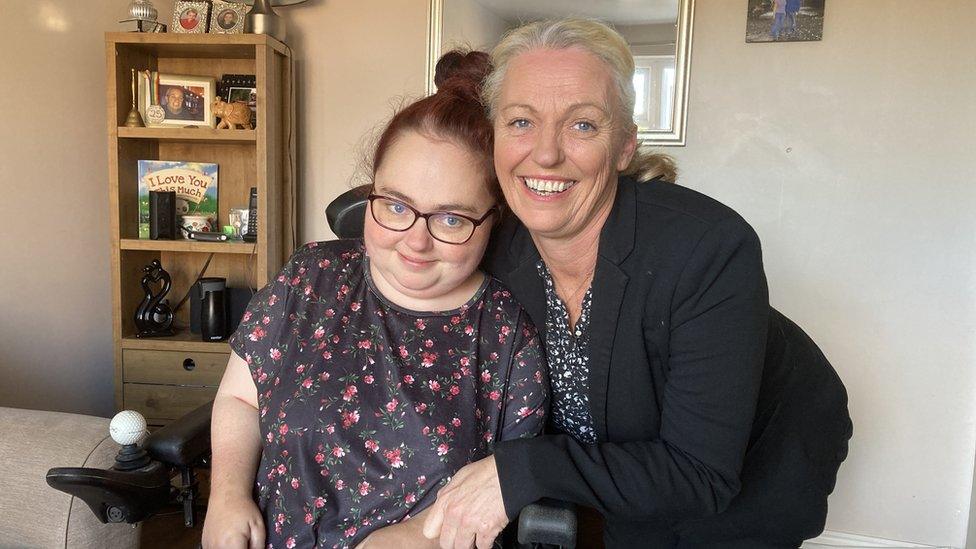
Jenna Kearns said her mother Melanie (pictured) and her aunt had to step in to care for her for the two months her social care was suspended
"I remember when it first happened and all I wanted to do was lie in bed because I was so upset," she said.
The new study found that staff shortages were the primary reason that people in need of care went without.
The main reasons people in need went without care were:
Staff shortages (22%)
Not fitting eligibility criteria (17%)
Feeling too proud to access the care (15%)
Application was too complicated (10%)
One third of people felt dissatisfied with the service, with just over half satisfied with social care services.
Jenna said: "I don't like asking for help, I really don't, and that situation forced me to because I needed the help. In a way you feel guilty, so it took a lot of it out of me as well."
"I felt really rubbish about myself, because I thought 'hang on, I'm having to rely on people' and it wasn't fair. In a way you feel guilty, so it took a lot of it out of me."
After two months her care was resumed after a new company was brought on board, but she said the experience still weighed on her mind.
"Every time I hear they're short staffed I think 'oh my God, is it going to happen again?'."
'It went on, and it went on, and on, and on'
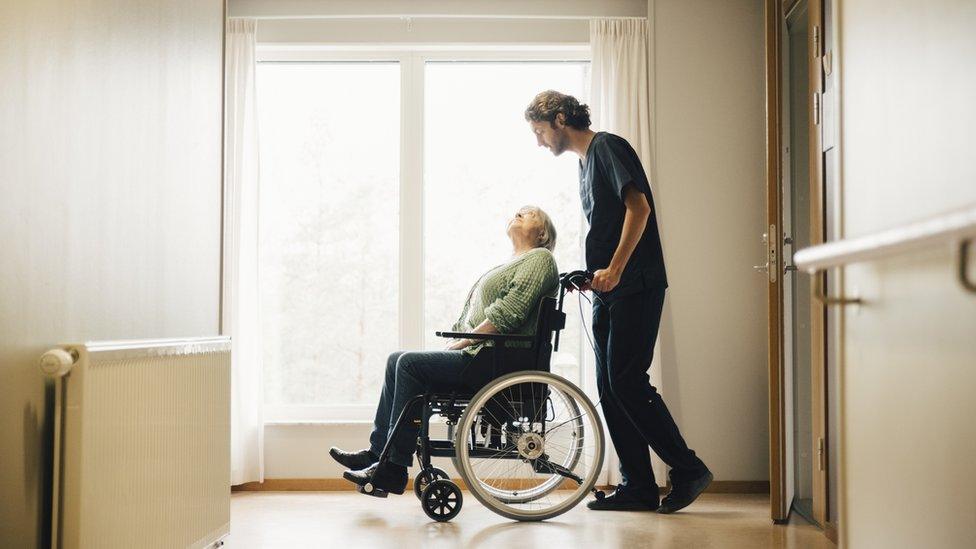
Ms Davies said stress and long hours took its toll on her staff, some of which left their jobs
Jane Davies, who runs All Care in Barry, Vale of Glamorgan, said the business struggled with staff isolating with Covid and recruitment problems over the pandemic - which led to the issues.
"We would ask families to help, that sort of thing, but it was just the fact that staff had to go into isolation for such a long period of time, so that took out our main staff," she said.
Ms Davies said while social care recipients were feeling the pressure, staff felt it too, and had to deal with stress caused by the crisis.
"It went on, and it went on, and on, and on and people kept giving, the staff kept giving, and it was exhausting.
"And then of course exhaustion leads to all other sorts of problems, people experience mental health problems, mental health issues they would never class themselves as having.
"We as managers almost formed counselling services for our own staff, referring them to counsellors to help them, people that could help them.
Ms Davies said not being able to offer care to everyone in need was "heart-rending", but it was impossible to take on new patients without compromising the quality of care for all.
"It was sad and it was so hard to deal with, but we had to concentrate on those individual that are already had on our books."
'We need to destigmatise social care'

Dr Williams said people being scared to catch Covid, and not wanting to burden stretched services were key reasons for people not receiving care
Dr Simon Williams of Swansea University, who led the study for the Senedd's research service, said: "The crisis didn't begin in the pandemic, but it seems the pandemic has really worsened the social care crisis."
He found 86% of respondents felt the social care system in Wales needed reform, with 94% saying it should be a priority for the UK and Welsh governments.
"It's important now the government in Wales, social care policy makers and providers really try and understand and address what these main barriers to accessing social care have been."
"Another thing that we need to look at is the topic of stigma, we need to kind of destigmatise social care.
"A lot of people still feel that they or someone in their family didn't apply, or didn't want to access social care because they were 'too proud' as they put it, or wanted to cope on their own.
"Part of that comes from this image that social care perhaps is a last resort or something that someone should only have if they're in absolute need, whereas sometimes getting people into the system earlier can really improve their quality of life."
The Welsh government said: "Despite the pressures, local authorities have maintained high-quality services to vulnerable adults, children and families.
"We are working closely with health boards and local authorities to increase social care workforce capacity including running a national recruitment campaign recognising it as a valuable and professional career."

HEARTBREAKING DECISIONS: Families fleeing the war in Ukraine
WALESCAST: One-stop shop of what's happening in the world of Welsh politics

- Published7 September 2021
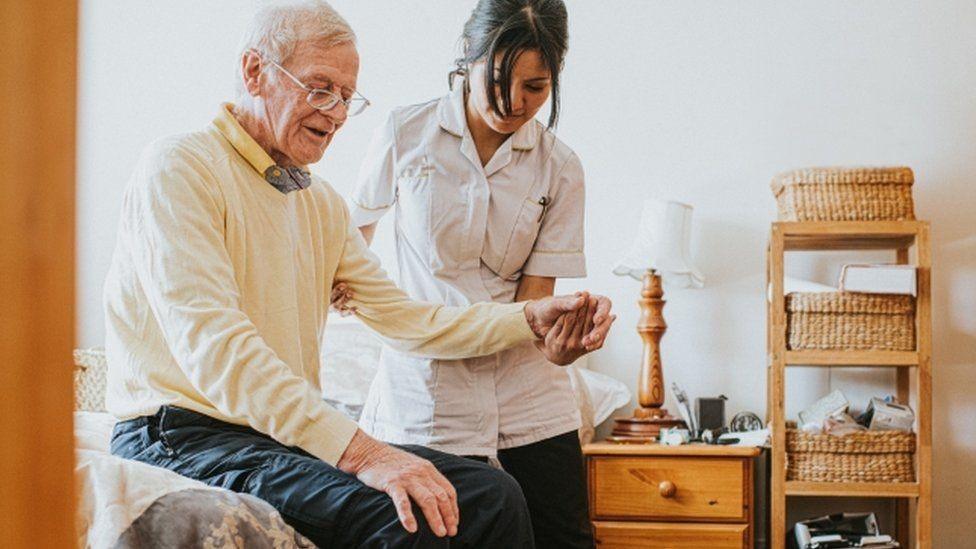
- Published10 February 2022
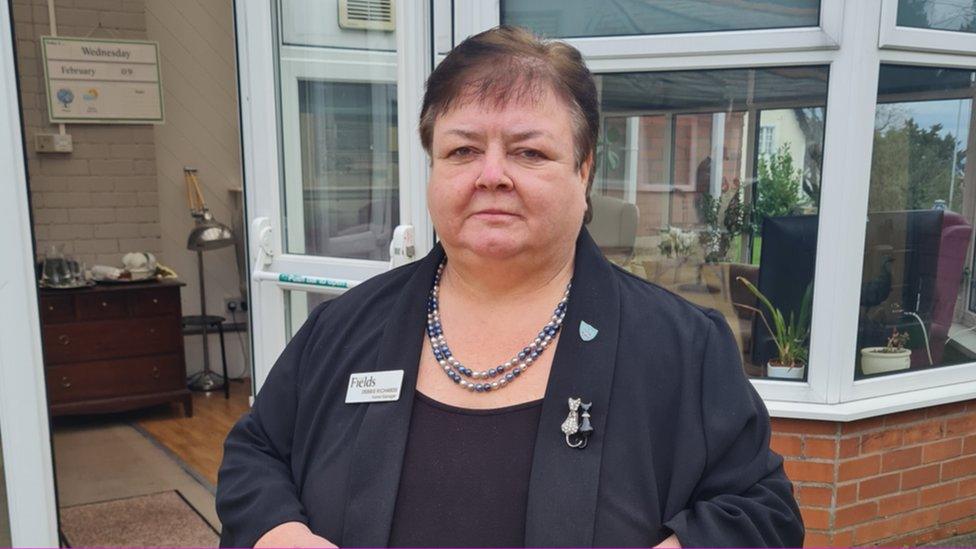
- Published27 April 2022
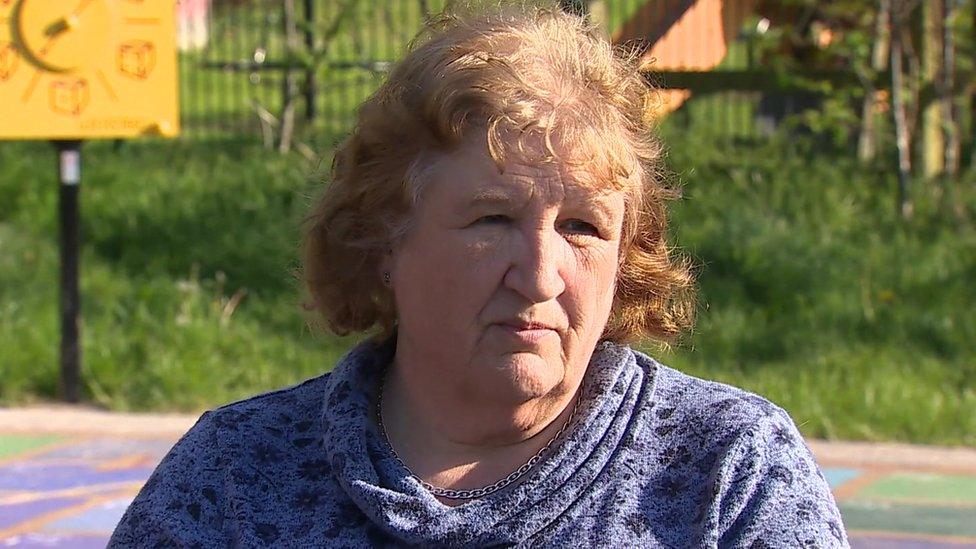
- Published28 September 2021
